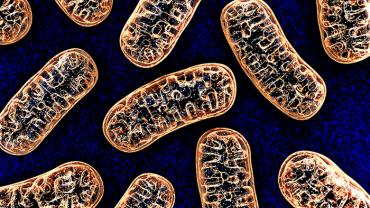
Adenosine triphosphate (ATP) provides the energy for most intracellular processes. There are many reasons for a reduction in ATP, including exercise, stress, mitochondrial dysfunction, genetic disorders, and lack of substrates for ATP synthesis. Low ATP levels have been linked to a variety of disorders including chronic fatigue syndrome, fibromyalgia, and cardiovascular disease. Finding ways to support cellular energy production may reduce the risk of these disorders. One way to do so is by ensuring adequate levels of the key substrates for cellular energy production.
The Role of D-Ribose in Cellular Energy
D-ribose (a 5-carbon molecule synthesized through the pentose phosphate pathway) is one of many key substrates involved in ATP synthesis. D-ribose also acts as a substrate for DNA, RNA, acetyl coenzyme A, flavin adenine dinucleotide (FADH), and nicotinamide adenine dinucleotide plus hydrogen (NADH), which all play a role in ATP production. The production of this key substrate (D-ribose) can be slow, especially in tissues, such as the heart and muscle, with low levels of the initial enzyme, glucose-6-phophate dehydrogenase. Nucleotide synthesis rate is based on the availability of phosphoribosyl pyrophosphate (PRPP), which needs the phosphorylation of ribose to ATP. In turn, increasing ribose also increases the availability of both substrates for PRPP, which can increase the rate of the re-synthesis of adenine nucleotides.
Thus, the availability of D-ribose impacts the ability to produce ATP and nucleotides. Supplementing with D-ribose bypasses the potentially rate-limiting steps to help create more ATP, and it counters the problems associated with reduced ATP levels.
D-Ribose Supplementation in Action
Cardiovascular disease, especially myocardial ischemia, is linked to lower cellular energy levels. In one study, taking a D-ribose supplement of 2.5 g, along with creatine and vitamins B1 and B6 for approximately 6 months led to improved stress tolerance in those with ischemic heart disease. Another study found that D-ribose alone also aided in improving stress tolerance in those with myocardial ischemia. In yet another study, D-ribose supplementation was found to have both diastolic function and quality of life benefits for those with congestive heart failure.
D-ribose supplementation may also help with fatigue, especially for patients who have chronic fatigue syndrome and fibromyalgia. In an open-labeled, pilot study, patients with fibromyalgia and/or chronic fatigue syndrome were given a bottle of D-ribose containing a total of 280 g. Participants were advised to take 5 g of D-ribose three times per day. Most participants felt improvement after supplementation, and there was a statistically significant improvement in subjective measurements of energy levels, sleep, mental clarity, pain, and overall well-being.
In healthy individuals, D-ribose supplementation may also help support the recovery of depressed ATP levels due to stress, thereby potentially enhancing exercise performance and recovery. This supplement may also increase the re-synthesis of ATP in healthy subjects after intense intermittent training to bring levels back to pre-exercise levels faster.
D-ribose plays an important role in energy production. Although the body can synthesize it in situations in which ATP levels are reduced (e.g., post-exercise or in chronic diseased states), providing the substrate D-ribose has been found to increase ATP production. This may help some of the effects of reduced ATP and mitochondrial dysfunction.
By Kendra Whitmire, MS, CNS